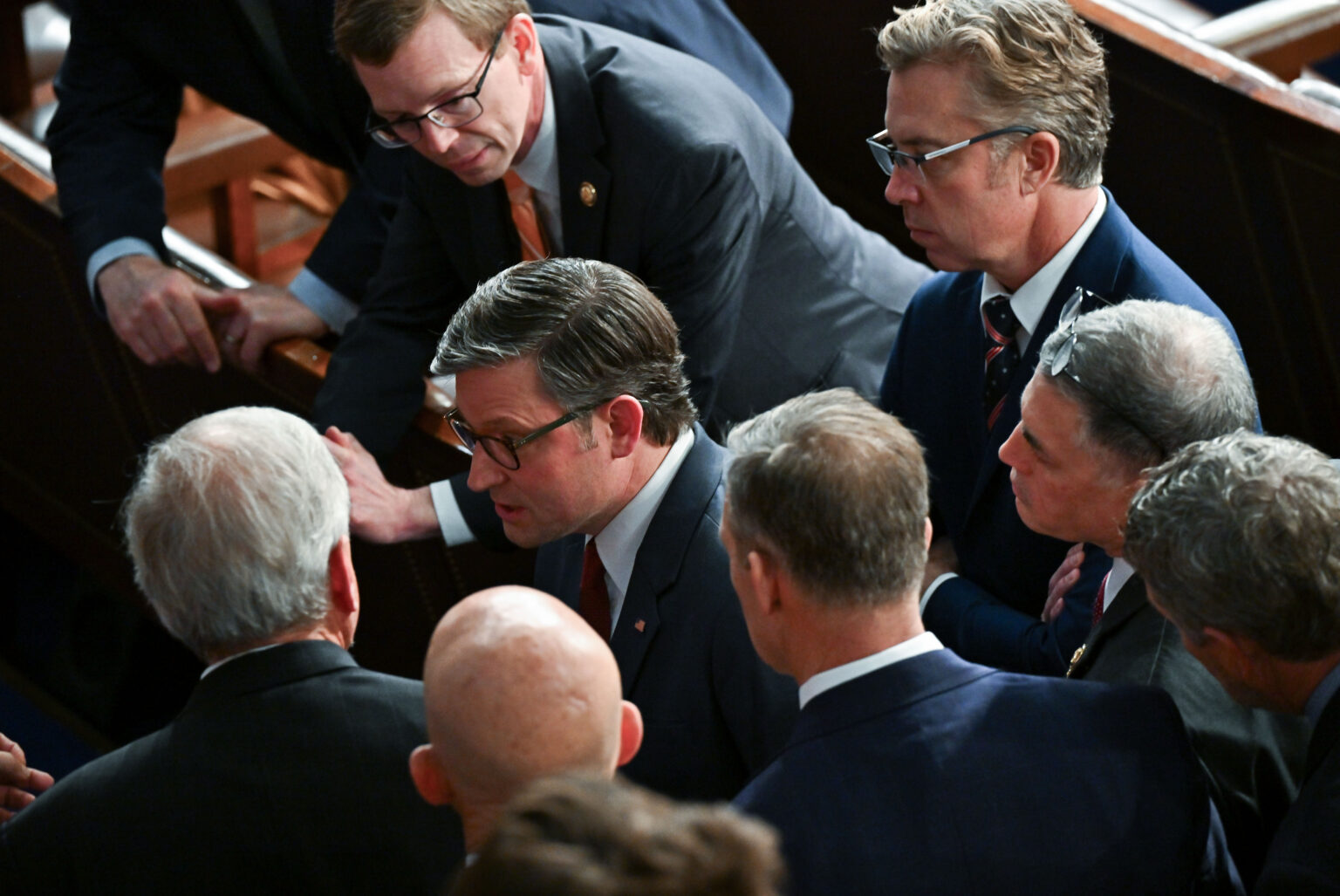Challenges Ahead for Senate Republicans in Finalizing President Trump’s Comprehensive Legislation
As Senate Republicans approach the culmination of their efforts to pass President Donald Trump’s expansive tax and immigration reform package, a significant hurdle looms-resistance from their counterparts in the House of Representatives. The path to enacting what could be a landmark piece of legislation is fraught with political and procedural obstacles, primarily stemming from disagreements within the GOP ranks.
Transformations and Disagreements Between Chambers
The Senate has made substantial modifications to the version of the bill initially approved by the House, which is known as Trump’s One Big Beautiful Bill Act. This legislation aims to deliver trillions of dollars in tax reductions, allocate hundreds of billions toward immigration enforcement and national defense, and reduce funding for social welfare and anti-poverty initiatives. However, many House Republicans now see the Senate’s draft as a far cry from the original agreement, citing significant deviations from the compromises they had previously negotiated.
Among the key differences are the Senate’s deeper cuts to Medicaid, raising concerns among representatives from rural areas who fear the potential closure of hospitals that depend heavily on Medicaid funding. While the Senate has temporarily maintained some clean energy incentives from the Biden administration’s 2022 Inflation Reduction Act-an area the House sought to eliminate immediately-the ongoing negotiations include contentious debates over the limits on state and local tax (SALT) deductions. This issue is particularly critical for representatives from high-tax states, who have threatened to oppose the bill if their demands are not met.
Fiscal Concerns and Political Dynamics
In May, conservative House budget hawks nearly derailed the legislation over fears that it would significantly increase the national debt. The Senate’s version, with its more extensive tax cuts and spending provisions, is expected to be even more costly. Senate Majority Leader John Thune (R-South Dakota) is pushing to secure a vote before the July 4th holiday, aiming to meet an internal deadline to send the bill to President Trump’s desk.
Efforts are underway to craft a bill that can pass both chambers without further amendments. Thune has engaged in multiple discussions with House Speaker Mike Johnson (R-Louisiana) to align their strategies. Despite these efforts, many House Republicans remain skeptical about endorsing the Senate’s draft, citing their core principles and previous commitments.
Internal GOP Divisions and Historical Precedents
Hardline conservatives, such as Rep. Andy Harris (R-Maryland), chair of the House Freedom Caucus, insist that the legislation must adhere to the original House framework, which they believe the Senate’s version does not. Similarly, Rep. Ralph Norman (R-South Carolina), a fiscal conservative on the Rules Committee, dismisses the Senate’s proposal as a “nonstarter,” emphasizing that they are unlikely to compromise on their initial stance.
Nevertheless, history suggests that these intra-party disagreements often resolve in favor of legislative passage. GOP lawmakers have previously voiced similar reservations during earlier stages of the budget reconciliation process-initially opposing the budget resolutions and then ultimately voting in favor after negotiations. Rep. Thomas Massie (R-Kentucky), known for his consistent opposition, notes that most Republicans tend to support the final bill regardless of initial hesitations, highlighting a pattern of party discipline.
Cost and Policy Disputes: The Core Obstacles
The primary challenge for the House remains the bill’s hefty price tag. The Congressional Budget Office estimates that the House version would add approximately $3.3 trillion to the national debt over a decade, factoring in interest and economic impacts. The Senate’s bill could be even more expensive, with the Joint Committee on Taxation indicating that its tax provisions are hundreds of billions of dollars costlier. Additionally, several proposed spending cuts and policy adjustments have been ruled out by the Senate parliamentarian, limiting the scope of potential savings.
Energy Credits and State Tax Deductions: Key Policy Divergences
The House’s approach involves rapidly phasing out clean energy incentives introduced by Biden’s Inflation Reduction Act, whereas the Senate intends to extend these programs for nearly ten years, supporting industries like hydropower, nuclear, and geothermal energy. Furthermore, a coalition of moderate House Republicans from high-tax states negotiated to increase the SALT deduction cap to $40,000 for middle-income taxpayers, a move the Senate rejected, leaving the deduction capped at $10,000 as set in 2017.
Medicaid and Healthcare Funding: A Divisive Issue
One of the most contentious points is the Senate’s proposal to limit payments to medical providers in certain states, a strategy aimed at increasing federal Medicaid funding. This approach has raised alarms among lawmakers representing rural areas, where hospitals heavily depend on Medicaid reimbursements. A bipartisan group of House Republicans from blue states and swing districts recently expressed concern that these changes would impose additional burdens on already strained healthcare facilities.
Senator Susan Collins (R-Maine) has advocated for a $100 billion fund to mitigate Medicaid cuts’ impact on rural hospitals, though she admits this may not fully address the problem. Meanwhile, other Senate Republicans, like Roger Marshall (R-Kansas), remain optimistic that the bill’s overall benefits-such as expanded tax cuts and increased defense spending-will persuade House members to accept the package.
Looking Ahead: The Path to Legislation
Despite the internal disagreements, the momentum within the GOP suggests that the legislation will ultimately advance. The reconciliation process, which allows the Senate to bypass a Democratic filibuster, is a critical tool in this effort. Historically, GOP lawmakers have shown a tendency to support legislation after initial reservations, emphasizing party unity over individual objections.
As negotiations continue, the key will be balancing fiscal responsibility with policy priorities, ensuring that the final bill can garner enough support from both chambers. The coming days will reveal whether the Republican leadership can reconcile these differences and deliver a comprehensive package that aligns with their legislative goals and political commitments.

